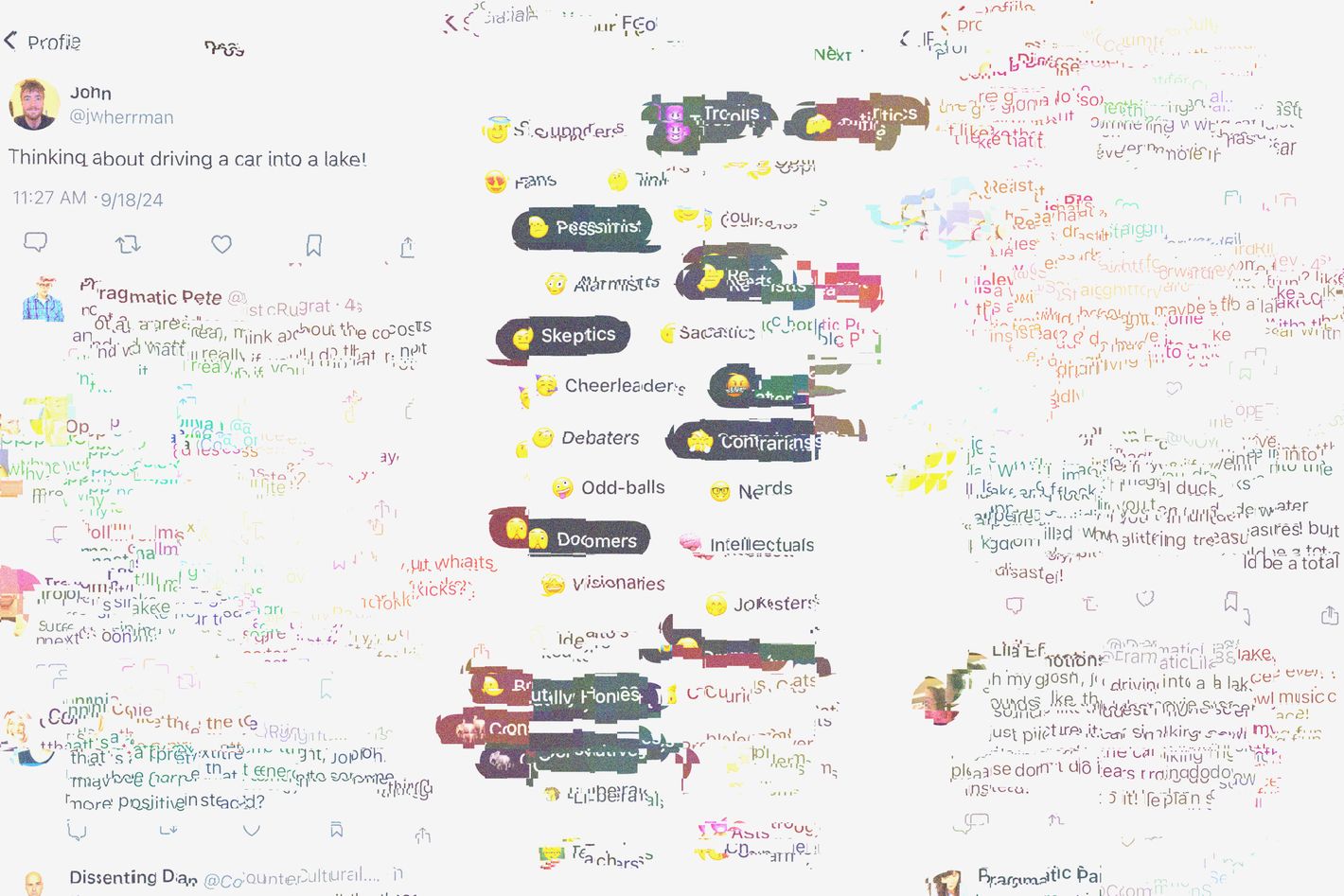Photo-Illustration: Intelligencer; Screenshot: SocialAI
OpenAI is considering a bit of a pivot, according to The Verge. Now that hundreds of millions of people are interacting with ChatGPT, the company has an idea: Why not see if they would be interested in a social network, too?
While the project is still in early stages, we’re told there’s an internal prototype focused on ChatGPT’s image generation that has a social feed. CEO Sam Altman has been privately asking outsiders for feedback about the project, our sources say. It’s unclear if OpenAI’s plan is to release the social network as a separate app or integrate it into ChatGPT, which became the most downloaded app globally last month.
There are plenty of specific reasons a company like OpenAI might see having its own “social feed” as valuable, but when it comes to large tech companies expanding into new turf, you really shouldn’t underrate Silicon Valley “everythingism” — the belief, held by people in charge of any sufficiently successful or popular tech product, that they should probably just do it all. Remember the Facebook phone? The Amazon phone? Microsoft’s smartphone OS? Google+? The Google ISP? The canceled Apple car? There are dozens of recent examples of unfocused expansion by big-tech companies with massive reserves of cash and engineering talent driven by a bored sense of conquest, basic imitative impulse, and ego. Look, there’s a new popular thing. Why didn’t we do that? Why can’t we have that? Wouldn’t Elon hate it if we did that too?
In that context, the news that OpenAI may be interested in competing more directly with Meta (which is now also an AI company), X (which recently merged into xAI), or Google (which is also a major AI firm) isn’t particularly surprising. In 2023, the rumor was that Sam Altman was working with Apple designer Jony Ive on the “iPhone of AI”; now, maybe it’s a “screenless” gadget and some “AI-enabled household devices.” In the modern tech industry, every company dreams of being an everything company and spends a lot of money trying to get there. Social-media firms have been mimicking one another’s features for years, ripping off and converging on similar forms — consider Instagram’s shift from a feed to Stories to Reels. Now there’s a chatbot in the mix too, and parent company Meta has been touting AI-generated content and characters as a growth strategy. (Meta also acquired Social.ai, a surreal “social network” composed entirely of AI personalities.) Social-media sites built on interactions between users are becoming less reliant on human content; meanwhile, a chatbot company, which offers a product through which users interact with an approximation of the human web through approximations of human assistants, is wondering if it might benefit from adding other people into the mix.
The narrower case for OpenAI’s rumored interest in social networking isn’t much weirder. OpenAI would like to continue to grow as it has been doing, and social-network effects may be able to help with that. It also has a lot of well-funded competition and needs its product to be sticky and hard to switch away from, a purpose for which those network effects are also hugely useful. (And to put it bluntly, OpenAI currently loses a lot of money while social networks make a lot of money.) ChatGPT is finding users and customers through word of mouth, which in many cases means discussions on social-media platforms owned and controlled by competitors, many of which are jamming chatbots and AI features into said platforms in an explicit effort to compete with OpenAI. It isn’t a condition of OpenAI’s success that people migrate social activity to some sort of platform owned by the company, in other words, but it certainly wouldn’t hurt.
There’s one more urgent reason OpenAI may be interested in social networking, though: as a source of fresh and free data. Unlike most of its biggest competitors, which have all been collecting and scraping and stealing training on largely similar data sets from the web and elsewhere, OpenAI has limited options for fresh and current content, which is useful for both training and sourcing relevant information in response to user requests. The company has entered into deals with media companies — including our parent firm — as well as platforms like Reddit, which function as sanctioned but limited sources of, for example, up-to-date instructional content and ongoing updates about and discussion of news and current events. Meta, Google, and xAI, however, have armies of users providing them with new content daily. You’re probably not going to get as much value out of millions of posts from post-Musk X as you will out of a platform like Reddit, and a bunch of users sharing AI image memes aren’t going to reproduce the work of the New York Times, but you’re getting something. And, crucially, you’re getting it for free.

